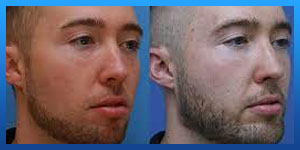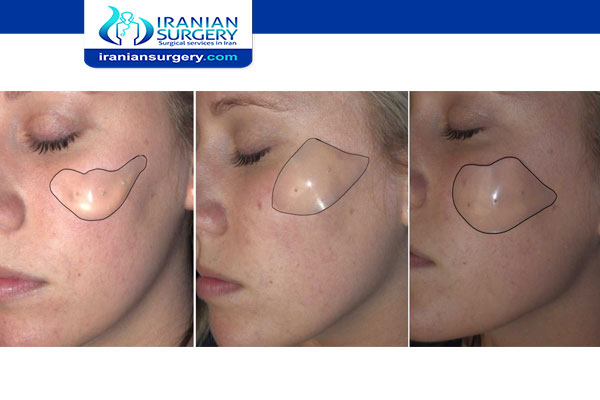Are cheek implants permanent?
What is cheek implant?
This procedure usually takes one hour but will depend on your specific combination of procedures planned. Cheek augmentation surgery is usually performed as an outpatient.
A screw fixated implant can last a lifetime, but be removed in 10 minutes or changed in size in about 25 minutes, making silicone facial implants a mainstay of cosmetic facial surgery. Cheek implants are a simple, effective, customizable, permanent and reversible procedure.
Cheek implants are one of the steps toward beauty or facial rejuvenation or, most importantly, fixing a problem in the face. A facelift does not necessarily include cheek implants, but it can make the sagging skin around the cheeks look younger and brighter. Here you can read more about the differences between cheek implants and facelift in Iran.
There will be a moderate amount of swelling around the cheek area and possibly under the eyes. This peaks at 48 to 72 hours after surgery and then starts to subside. Crushed ice applied to the cheeks will help during this time. Most of the visible swelling will disappear by about 2 weeks

Read more about : The German patient saved $ 14,000 by choosing Iran over Germany to have stomach liposuction and abdominoplasty surgery.
Read more about : The Swedish patient saved $ 90,000 by choosing Iran over the United States to have leg lengthening surgery.
Read more about : Rhinoplasty in Iran
What is Cheek Implant?
Cheek implants in Iran, also sometimes called cheek augmentation, are inserted to enhance cheekbones or to make the cheeks fuller. Like other types of plastic surgery procedures, cheek augmentation can make your face appear more youthful or balance your facial features, making you feel more attractive. Cheek implants in Iran is a transforming surgical procedure for women with narrow, weak cheek structure, as well as those who have lost cheek volume due to the natural ageing process. Cheek implantation effectively enhances the projection of the cheek, transforming sunken cheeks into more youthful looking, revitalised cheeks.As people age, the tissues of the face can become thinner and less firm. Adding volume to the cheek areas or middle of the face below the eyes with implants can improve facial contours and impart a more youthful appearance to the face.Cheek implants can also restore a more natural appearance to the face after reconstructive surgery for cancer, other illness or traumatic injury.
Read more about : Gynecomastia Surgery
Read more about : Blepharoplasty Surgery
Read more about : Facelift Surgery
Cheek implant surgery options
We offers two cheek augmentation treatment options in Iran:. Solid implants – (as a standalone treatment or combined with other aesthetic procedures). We use a solid implant called, ‘Medpor’ the implant placed through an incision from the buccal sulcus intraorally (within the mouth), between the gum and lip inside the mouth. The implant placement is just above the bone and is usually stabilised by a titanium screw.. Soft tissue implants – using either the patient’s own fat or synthetic materials such as hyaluronic acid.There are three general shapes to cheek implants:. Malar – These implants are placed directly on the cheekbones, providing higher projection.. Submalar – These implants provide fuller cheeks, rounding out a gaunt, or sunken, appearance. A combined implant augments both the cheekbones and the cheeks.Some implants, such as those made from silicone, can be removed later. Others integrate with natural bone tissue and become part of the cheek structure.

Who are the good candidates for Cheek Augmentation?
Those who have flat, deflated-looking cheeks; cheeks that lack definition; hollows in the cheeks or temples; and/or under-eye bags or lines and wrinkles on the cheeks.
Before cheek implants surgery
Cosmetic surgery can be a life enhancing decision and we’re here to help you make the right one. Our experienced cosmetic surgeons will guide you through every step of the way.It’s important to meet with your chosen consultant before treatment so that you are completely comfortable with them and they know what you want to achieve. It’s helpful to bring in some pictures and a friend or family member to your initial meeting to help articulate your thoughts. You should also ask to see some of the surgeon\’s recent before and after pictures of similar operations they\’ve performed.This is an important decision and we\’re here to listen and help you achieve your goals.If you decide to go ahead with the procedure, we\’ll give you at least two weeks between consultation and operation date.
This is because we want you to be really happy and confident with your decision.It is important to discuss your aims carefully. Surgery should achieve an aesthetically balanced chin, mid-face and upper face.Implant typesePTFE-Coated implants that allow tissue ingrowth and give a natural feel.Smoking Essential to stop at least 2 weeks before surgery and for a minimum of 6 weeks after surgery.Drugs Avoid aspirin/ibuprofen type analgesics for 2 weeks before and after your surgery.
Read more about : Liposuction Surgery
Read more about : Brow Lift Surgery
Read more about : Neck Lift Surgery
Read more about : Hair Transplant
Read more about : Ear Pinning Surgery
During cheek implants surgery
Cheek implant surgery is performed under a general anaesthetic, which means you will be asleep for the duration of the procedure, or under a local anaesthetic, when the area will be numb but you will be awake. You surgeon will discuss this with you beforehand. During the surgery, the surgeon will insert the implant through an incision made inside your mouth where your cheek joins your upper gum. This technique means there will be no visible scarring. Sometimes they may also insert the implant through a cut in your lower eyelid The material used for the implant is usually silicone or another manufactured material that the body tolerates well. Sometimes it is necessary to use a bone graft, usually taken from the hip. If a bone graft is used there will be some scarring in the area where your surgeon takes the graft. Your consultant will discuss this with you prior to your operation. You may also opt for an injectable filler using your own fat or a soft tissue filler. If you are having the procedure done along with a face lift, rhinoplasty, brow lift, or eye lift, your plastic surgeon may use the same incisions for the procedures.

After Cheek Implants Surgery
If you have general anesthesia, the recovery from the anaesthetic will take 1-2 weeks. It is important that you should not carry out any active duties for 48 hours following the procedure. The surgeon will put a dressing on the person’s face immediately after surgery, and this dressing will remain in place for two to three days. The person will experience some tenderness. Post-operative discomfort may be controlled with prescribed medications. Most people feel a stretched, tight sensation in the cheek area after getting cheek implants or fillers, but this usually subsides in a week. Following Cheek Implant surgery you should:. Take the medication as prescribed. It is important to keep the mouth clean, particularly where the incision has been made, with good brushing and warm salty water gargling. Avoid energetic or gym exercises for 1 week. Avoid contact sports etc. for 6 weeks. Any bruising and swelling will gradually settle down over a period of 7-10 days. If you have undue persistent pain, you should contact the clinic. Any other specific instructions will be given to you at the time of your discharge.
Benefits of Cheek Implants Surgery
The cheeks should highlight the middle face acting as the pedestal for the eyes. Full cheeks portray youth and an attractive face. Aesthetically balanced cheek enhancement should be almost undetectable as the cheeks should be in harmony with the rest of the face. This result can restore self-confidence and boost self-esteem. Implants can be custom-made to fit your anatomy, and you can choose to have only one, to balance asymmetries. Cheek implants aren’t normally obvious, if done with the correctly sized implant. Adding volume in the midface with cheek implants may lift sagging jowls.
Complications and Risks
Common to all surgical procedures there are always risks associated with surgery. However, complications are uncommon. Bruising can occur and may take 2 weeks to resolve, while major bleeding is rare. Infection is infrequent (less than 0.5%) and will require a course of appropriate antibiotics. Displacement of the implants can occur in the early post-operative course. This is prevented by avoiding pressure on the cheeks sleeping, massaging the face or excessive movement. Some altered sensation around the cheeks is expected and will commonly return to normal between 6 to 12 weeks after surgery.
Though rare in occurrence, cheek implants complications can happen. Initially, there is the risk of an adverse reaction to anesthesia used in the cheek surgery procedure. A correlation exists between anesthesia complications and the use of tobacco, antidepressants, and various other substances. For this reason, disclosure of any substance use to the surgeon prior to surgery is very important.Post-surgery cheek implants complications may include infection, which is usually treatable with antibiotics. Misplacement of a cheek implant can result in shifting that causes asymmetry, sometimes necessitating a second procedure to realign the implant. If you are considering cheek implants and you’d like to reduce the chance of post-surgical complications, the best course of action is to take care when choosing a plastic surgeon. Pain – Moderate discomfort expected, take regular painkillers for 3-5 days.
Avoid Aspirin/Ibuprofen. Bruising – Occasional, may last for 2 weeks. Wound – Occasionally, mild infection. Appropriate antibiotics will be provided if necessary. Rarely, serious infection requiring removal of the implant. Risk <1%. Rarely, haematoma (blood collection) that may require drainage. Sensation – Some diminished sensation may occur inside the mouth. Return to normal may take up to 6 weeks. Displacement Implant displacement is very uncommon. Avoid pressure on cheeks, sleeping on front and side for first 6 weeks.
How long is the Cheek Implants procedure?
Cheek Augmentation Surgery normally takes approximately 1 hour to perform depending on the complexity of the surgery.

